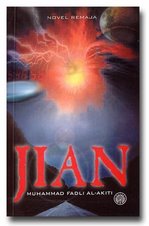Flimsy reasons for banning and burning books
2009/08/08
ONE can perhaps understand if Madame Bovary and Lady Chatterley's Lover were banned. There were those who considered the novels by Gustave Flaubert and D.H. Lawrence as immoral and containing "explicit sexual descriptions". But Moll Flanders, Ulysses and Peyton Place? Well, Daniel Defoe's story of the luscious Moll Flanders was considered "obscene". Her insatiable lust was too hot to be handled by less discerning members of the public.
Ulysses is considered one of the most difficult novels in the English language. James Joyce, the author, wrote a text so dense in a style so obscure that even the most enlightened of readers find it impenetrable. There is an "intellectual industry" trying to make sense of the novel. In fact, Marilyn French came out with The Book As World arguing that after more than 70 years of "intelligent and dedicated exploration", the "huge subcontinent" of Joyce's novel has yet to be unravelled. So, why the reason for the banning? "Unusual frankness" was cited as one reason. The fact that it contains "the dirtiest language" in any novel was another. Luckily, one US judge decreed that the book was "not pornographic". "I did not anywhere detect the leer of the sensualist," said the learned judge.
Grace Metalious's Peyton Place was made into a popular serialised TV drama back in the 1970s. When the novel was published in 1956, it became a runaway bestseller. It sold three million copies in its first year, quite a feat at the time. The reason given was its treatment of the characters' sexuality and promiscuity. In some places in the US, the novel was considered objectionable for anyone under 18.
Writers, too, have been involved in literary purges and intellectual witchhunts. Closer to home, the late Pramoedya Ananta Toer, one of the best writers Indonesia has ever produced, was involved in the Lembaga Kebudayaan Rakyat, better known as Lekra. It was controlled by Partai Komunis Indonesia and denounced works that were anti-rakyat or "irrelevant to the struggle".
Writers were labelled, condemned and their books became bonfires. Sadly, Pramoedya's chequered past in his involvement with Lekra caught up with him. Prominent Indonesian writers protested when he was conferred the Magsaysay Award for Literature. Their argument: he stifled creativity and suppressed literary works.
It is heartening to know that some of the greatest works of literature survived official purging and state censorship. George Orwell's Animal Farm was understandably targeted. It was no "fairy story" as claimed by its subtitle. It is one of the most notorious satires ever written in any language. The author's attempt to look at human beings from the prism of talking animals was not without purpose. It was the first book, so claimed by the author, "that fuses political and artistic purposes into one whole".
The book achieved its moments of infamy. Every state had its reasons for banning the novel. Its satire was deemed to be dangerous. It was considered "problematic" to many booksellers fearing reprisals from leaders who found the book too dangerous to be read by the masses. The hugely popular Doctor Zhivago was banned for casting doubt on the legitimacy of the Bolshevik Revolution. Boris Pasternak's book was never published in Russia until much later despite its international appeal. The film based on the book, produced in 1965 and directed by David Lean, was a massive box-office hit. The Russians also banned Gulag Archipelago by Aleksandr Solzhenitsyn. The author was even banished and stripped of his citizenship. But, like many banned books, Gulag became an everlasting reminder of the notorious Soviet prison system.
John Steinbeck's The Grapes of Wrath set in the times of the Great Depression in Oklahoma and California has always been regarded one of America's classics. But the path to glory was not easy. The Joads family was supposed to represent the era, but sadly there were those who believed the depiction was not natural, even distorted. Indecency, obscenity, abhorrence to the ways women were portrayed were among the reasons cited for its banning. You may want to know why another Steinbeck novel, Of Mice and Men, was also banned. Those against the book normally cited "obscenity" and the vulgar use of language as reasons.
You have probably watched One Flew Over the Cuckoo's Nest, the 1996 film directed by Milos Forman. Such were the characters in the original novel that when it was adapted for film, Jack Nicholson and Louise Fletcher won best actor and actress awards respectively. But the book invited controversy when it was first published in 1962. Again, "obscene, filthy language" was cited as the reason for the ban. The fact that the book deals with the inmates of a lunatic asylum did not count. The book was said "to glorify criminal activity" and had the tendency "to corrupt juveniles".
Another mind-boggling situation was the ban on To Kill A Mocking Bird by Harper Lee. The book touched a raw nerve in the US when it appeared in 1960. It won the Pulitzer Prize in 1961. It was the story of a white lawyer who defended a black labourer accused of raping a white girl. Atticus Finch, the lawyer, believed in the rule of law. He also believed that Tom Robinson was innocent. Alabama, in the 1930s, was no place for a black accused of rape, nor for his lawyer. But why ban the book? White supremacist groups took offence at the portrayal of Atticus as a crusading lawyer for a just cause. Some labelled it a "filthy, trashy novel".
Censorship comes in many forms. Some of the books mentioned were not banned wholesale by governments, but there are Little Napoleons out there trying to show their power. It took someone with an axe to grind to initiate such an intellectual calamity.
Books are supposed to represent the best of the nation's intellectual tradition. But, sadly, books are banned and burnt for challenging prevailing assumptions or deemed detrimental to the ruling elite. Worse, they are suppressed for being politically or religiously incorrect. Or for being different. Books are supposed to nourish the mind. Books help to inculcate good values in society, encourage healthy debate and enlarge the realm of learning. Banning books is not an acceptable method to suppress freedom of expression.
nota:
- Kesemua novel Inggeris/Barat di atas merupakan novel-novel yang telah melalui populariti bacaan dan pengiktirafan yang tinggi daripada pihak industri buku serta sasterawan/pembaca sastera barat. Jikalau tidak pun pada masanya, pada masa-masa selanjutnya diiktiraf sebagai "klasik" sepertimana Lady Chatterley's Lover.
- Novel SHIT nukilan SN Shannon Ahmad adalah antara novel Malaysia yang mencapai fenomena populariti bacaan sepertimana yang berlaku di negara barat. Novel itu dinyatakan sebagai "lucah" dan "menjatuhkan penulisnya dari tangga sasterawannya". Novel itu diklasifikasikan oleh Raja Azmi (bayangkan seorang produser filem dan penerbit majalah) sebagai "memualkan".
- TiVi suatu contoh novel sastera yang popular dan berpengaruh yang sudah "ditahan" daripada dicetak. Novel ini juga dituduh sebagai "lucah".
- Persoalan: Adakah baik apabila kita, para pemerhati sastera timur, berpegang teguh kepada nilai murni dan moral lalu menapis diri kita daripada memahami novel-novel yang disebut di atas? Adakah ini satu "norma" yang harus kita ikuti atau akan menahan kita mengenali pelbagai lagi bentuk sastera yang ada, walaupun kemungkinan melawan tata nilai murni yang kita tahu dan sedia ada?
- Adakah masanya kita menolak sepenuhnya novel seperti Moll Flanders kerana ketaksuban wataknya "yang tak tertahan nafsunya" atau Of Mice and Men yang "penuh sebutan lucah"?
- Adakah kita mampu "melampaui" tindaan nilai yang sedia ada lalu memahami nilai-nilai baru kemanusiaan yang kemungkinan kita sendiri tidak pernah mengenalinya?
- Bilakah kita mahu melihat sastera sebagai hal objektif dan tidak terikat dengan mana-mana perasaan curiga? Bolehkah kita melihat sastera sebagai sastera? Atau adakah sastera itu berbeza dengan "literature"?
nota:
- Kesemua novel Inggeris/Barat di atas merupakan novel-novel yang telah melalui populariti bacaan dan pengiktirafan yang tinggi daripada pihak industri buku serta sasterawan/pembaca sastera barat. Jikalau tidak pun pada masanya, pada masa-masa selanjutnya diiktiraf sebagai "klasik" sepertimana Lady Chatterley's Lover.
- Novel SHIT nukilan SN Shannon Ahmad adalah antara novel Malaysia yang mencapai fenomena populariti bacaan sepertimana yang berlaku di negara barat. Novel itu dinyatakan sebagai "lucah" dan "menjatuhkan penulisnya dari tangga sasterawannya". Novel itu diklasifikasikan oleh Raja Azmi (bayangkan seorang produser filem dan penerbit majalah) sebagai "memualkan".
- TiVi suatu contoh novel sastera yang popular dan berpengaruh yang sudah "ditahan" daripada dicetak. Novel ini juga dituduh sebagai "lucah".
- Persoalan: Adakah baik apabila kita, para pemerhati sastera timur, berpegang teguh kepada nilai murni dan moral lalu menapis diri kita daripada memahami novel-novel yang disebut di atas? Adakah ini satu "norma" yang harus kita ikuti atau akan menahan kita mengenali pelbagai lagi bentuk sastera yang ada, walaupun kemungkinan melawan tata nilai murni yang kita tahu dan sedia ada?
- Adakah masanya kita menolak sepenuhnya novel seperti Moll Flanders kerana ketaksuban wataknya "yang tak tertahan nafsunya" atau Of Mice and Men yang "penuh sebutan lucah"?
- Adakah kita mampu "melampaui" tindaan nilai yang sedia ada lalu memahami nilai-nilai baru kemanusiaan yang kemungkinan kita sendiri tidak pernah mengenalinya?
- Bilakah kita mahu melihat sastera sebagai hal objektif dan tidak terikat dengan mana-mana perasaan curiga? Bolehkah kita melihat sastera sebagai sastera? Atau adakah sastera itu berbeza dengan "literature"?





















3 comments:
All fiction... is censored in the interests of the ruling class.
(George Orwell)
I may not agree with what you say, but I will defend to the death your right to say it.
— Voltaire
Satu pandangan yang amat saya sanjungi.
wah, bagi lagi quote, sukanya saya baca:)
Post a Comment